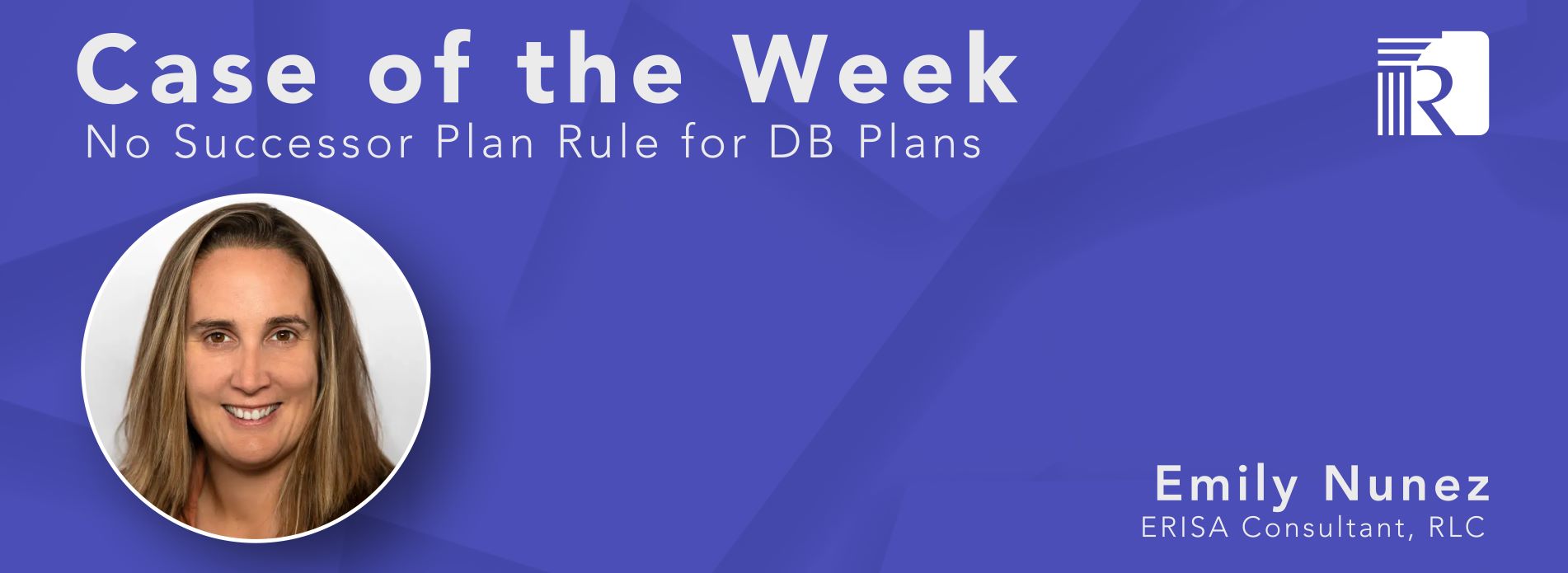
No Successor Plan Rule for Defined Benefit Plans
There is no successor plan rule that applies to defined benefit plans, including cash balance plans. Further, the IRS does not consider a cash balance plan as a successor plan for a terminated 401(k) plan. All plans are subject to permanency rules.
Welcome to the Retirement Learning Center’s (RLC) Case of the Week. Our ERISA consultants regularly receive calls from financial advisors on a broad array of technical topics related to IRAs, qualified retirement plans and other types of retirement savings and income plans, including nonqualified plans, stock options, Social Security and Medicare. This is where we highlight the most relevant topics affecting your business. A recent call with a financial advisor in Arizona is representative of a common question on cash balance plans.
“Is there a rule similar to the 401(k) successor plan rule that also applies to cash balance plans?”
Highlights of the discussion
Unlike 401(k) plans, there is no successor plan rule for defined benefit plans, including cash balance plans. Keep in mind, though, all plans are subject to plan permanency principles. “The term ‘plan’ implies a permanent, as distinguished from a temporary, program,” Treasury Regulation 1.401-1(b)(2).
As we have previously discussed, the successor plan rule was created to prevent employers from circumventing the age 59 ½ early distribution restriction that applies to salary deferrals by simply terminating a 401(k) or 403(b) plan to allow for withdrawals and immediately establishing a new successor plan (i.e., “an alternative defined contribution plan”).
The IRS does not consider a cash balance plan as a successor plan for a terminated 401(k) plan [Treas. Reg. 1.401(k)-1(d)(4)(i)]. Therefore, a business owner could establish a cash balance plan immediately following a 401(k) plan’s termination. Before terminating a 401(k) plan, however, the sponsor may want to consider the benefits of maintaining both a 401(k) and cash balance plan. Cash balance plans can allow much higher levels of contributions than a profit sharing or 401(k) plan. That equates to higher tax deductions for business owners. For some businesses, having both a defined contribution and cash balance plan may be appealing (see When Might a Cash Balance Plan Be a Good Fit?).
Conclusion
There is no successor plan rule that applies to defined benefit plans, including cash balance plans. Further, the IRS does not consider a cash balance plan as a successor plan for a terminated 401(k) plan. All plans are subject to permanency rules. Link to more information on cash balance plans.
